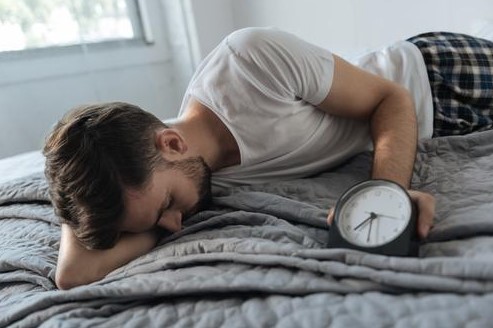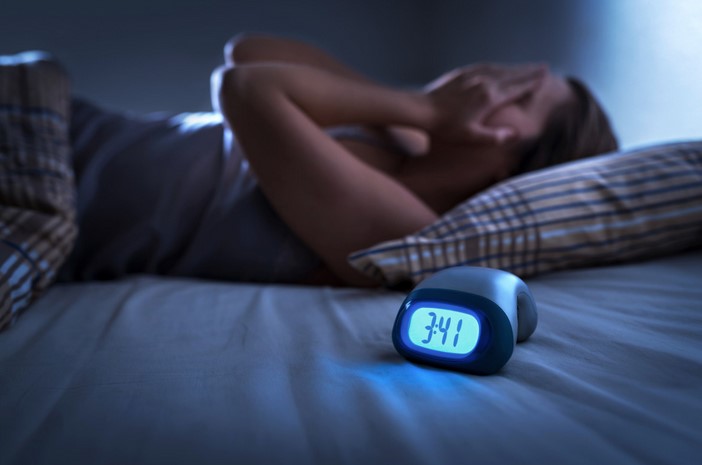
In today’s fast-paced world, stress has become an unavoidable part of daily life. From work pressures to personal responsibilities, the constant demands can take a toll on your mental and physical well-being. One of the most significant consequences of prolonged stress is sleep disruption from stress, which affects millions of individuals worldwide. Stress can trigger a cascade of physiological and psychological responses that interfere with the body’s natural ability to rest. In this article, we will explore how stress impacts your sleep and provide practical tips for regaining the restful sleep you need to function at your best.
Understanding the Link Between Stress and Sleep Disruption
Stress has a profound impact on both the mind and body. When you experience stress, your body releases hormones such as cortisol and adrenaline, which are part of the “fight or flight” response. These hormones increase your heart rate, elevate blood pressure, and prepare your body to face a potential threat. While these responses are helpful in dangerous situations, they are not conducive to rest and relaxation.
1. The Physiological Effects of Stress on Sleep
When stress becomes chronic, it can have lasting effects on your sleep quality. One of the primary ways sleep disruption from stress occurs is through heightened levels of cortisol. Normally, cortisol follows a natural rhythm throughout the day, peaking in the morning to help you feel alert and gradually decreasing as you approach bedtime. However, when you’re stressed, cortisol levels can remain elevated, making it difficult for your body to transition into a restful state.
Moreover, stress can cause an overactive mind, making it hard to “turn off” your thoughts at night. Racing thoughts about work, relationships, or future uncertainties can prevent you from falling asleep or staying asleep. This cycle of poor sleep and heightened stress can create a vicious loop, as lack of sleep can worsen your stress levels, and higher stress can make it harder to sleep.
2. Psychological Impact of Stress on Sleep
Stress doesn’t only affect the body—it also has significant psychological effects. People experiencing stress often suffer from anxiety, which can manifest as an inability to stop worrying or fear about things that may or may not happen. Anxiety at night can cause you to lie awake in bed, thinking about potential issues or worrying about the next day. This heightened mental activity is far from ideal when you need to unwind and prepare for sleep.
In addition, stress can lead to conditions such as insomnia or hypersomnia (excessive sleep). Insomnia involves difficulty falling asleep or staying asleep, while hypersomnia can result in excessive daytime sleepiness. Both of these issues are commonly triggered by prolonged stress and can lead to a chronic cycle of sleep deprivation.
How to Break the Cycle of Sleep Disruption from Stress
Fortunately, there are several strategies you can implement to reduce sleep disruption from stress and regain a restful night’s sleep. While it’s impossible to eliminate all stress from life, these methods can help you manage your stress more effectively and improve your sleep quality.
1. Create a Relaxing Bedtime Routine
Establishing a calming pre-sleep routine can help signal to your body that it’s time to wind down. This might include activities such as:
- Reading a book or listening to calming music
- Taking a warm bath or shower
- Practicing mindfulness or gentle meditation
- Engaging in light stretching or yoga to relax your muscles
Avoid activities that can heighten stress or make your mind more active, such as checking emails, engaging in intense physical activity, or watching stimulating TV shows or movies. By creating a consistent bedtime routine, you can help your body and mind transition into a more restful state, making it easier to fall asleep and stay asleep.
2. Manage Stress Throughout the Day
While it’s essential to address stress before bedtime, managing stress throughout the day is just as important. Implementing stress-reducing techniques can help lower your overall stress levels, making it easier to relax at night. Here are some strategies you can try:
- Exercise regularly: Physical activity releases endorphins, which are natural mood boosters. Exercise can help alleviate stress, reduce anxiety, and improve sleep quality.
- Practice deep breathing: Deep breathing exercises help activate the body’s relaxation response and counteract the effects of stress hormones. Try inhaling slowly for a count of four, holding for four seconds, and exhaling for a count of four.
- Mindfulness and meditation: Mindfulness techniques, such as guided meditation, help you stay present and calm your mind. Apps like Headspace or Calm offer guided meditations to help reduce anxiety and stress.
- Take regular breaks: During stressful times, make sure to take short breaks throughout the day to recharge. Stepping away from work or a stressful situation can help prevent burnout and mental exhaustion.
3. Limit Stimulants and Screen Time Before Bed
Caffeine, nicotine, and alcohol are common substances that can interfere with sleep. Caffeine and nicotine are stimulants that can keep you awake or disrupt your sleep cycle, while alcohol may initially make you feel drowsy but can lead to fragmented sleep later in the night. To improve your sleep quality, avoid consuming these substances in the late afternoon or evening.
In addition, screen time from electronic devices such as smartphones, computers, and televisions can disrupt your circadian rhythm. The blue light emitted by these devices suppresses the production of melatonin, the hormone that signals to your body that it’s time to sleep. To improve sleep, consider limiting screen time for at least an hour before bed. Instead, opt for relaxing activities such as reading a book, journaling, or practicing relaxation techniques.
When to Seek Professional Help
If you’ve tried the strategies outlined above and still struggle with sleep disruption from stress, it may be time to seek professional help. Persistent sleep problems can lead to more severe health issues, such as chronic fatigue, mood disorders, and decreased immune function. A healthcare provider can help identify the underlying causes of your sleep disruption and recommend appropriate treatments, which may include:
- Cognitive Behavioral Therapy for Insomnia (CBT-I), a type of talk therapy focused on changing unhealthy sleep habits
- Medication, such as sleep aids or anti-anxiety medications (if deemed necessary by a doctor)
- Referrals to a sleep specialist or therapist who specializes in stress management and sleep disorders
Sleep disruption from stress is a common and often debilitating problem, but it’s not something you have to live with. By implementing the strategies mentioned above, such as creating a relaxing bedtime routine, managing stress throughout the day, and limiting stimulants before bed, you can regain the restful sleep you need to function at your best. Remember, the key to overcoming sleep disruption from stress is consistency—by committing to these changes, you can break the cycle of stress-related insomnia and enjoy the benefits of better sleep and improved overall health. If your sleep issues persist, don’t hesitate to seek professional help to address the root causes and find the most effective treatment for your situation.

